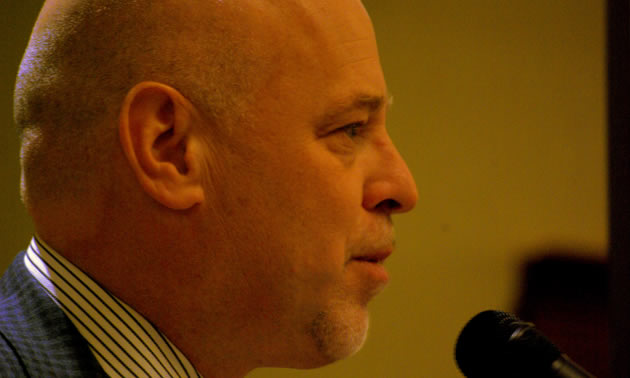Federal Budget 2018 falls short on enhancing business competitiveness

Pierre Gratton, President and CEO of The Mining Association of Canada. — Photo courtesy Robert Hawkins/M&E
The Mining Association of Canada (MAC) expresses disappointment that Budget 2018 contains few measures to enhance the competitiveness of Canadian business.
“Global competition for new mining investment has never been more intense,” stated Pierre Gratton, President and CEO, MAC. “With optimism returning to the global mining sector, Canada stands to gain by attracting new investments in mineral exploration and investment, creating high-paying, middle class jobs for Indigenous and non-Indigenous Canadians. Unfortunately, Budget 2018 does little to enhance Canada’s competitiveness at a time when the country’s relative share of exploration spending and new mine investment has been declining, and as our major trading partner, the United States, has significantly reduced corporate and personal income taxes.”
Notwithstanding these general concerns, the association welcomes several policy measures in Budget 2018, particularly those focused on efforts to enhance workforce diversity, notably:
- Enhanced funding for Indigenous skills training with the creation of the Indigenous Skills and Employment Training Program. This replaces the Aboriginal Skills and Employment Training Program, which has made important contributions to Indigenous participation in Canada’s mining sector.
- Funding to pilot an Apprentice Incentive Grant for Women to encourage more women to pursue careers in trades.
- The one-year renewal of the Mineral Exploration Tax Credit.
- Funding to support the implementation of the Impact Assessment Act and the Species at Risk Act.
- Funding to establish a stronger Canadian diplomatic and trade support presence in China and Asia.
The long-term prospects for global mining growth remain strong, driven by emerging market demand for minerals and metals. Additionally, the global transition to a low carbon future will serve to increase demand for mining products as they are the building blocks of low carbon technologies. Canada’s ability to seize growth opportunities and harness the potential of a low carbon future rests on its policy and fiscal environment.
The mining industry is a major sector of Canada’s economy, contributing $57.6 billion to national GDP and responsible for 19 percent of the value of Canadian goods exports in 2016. Canada’s mining sector employs 596,000 people directly and indirectly across the country. The industry is proportionally the largest private sector employer of Indigenous peoples in Canada and a major customer of Indigenous-owned businesses.




